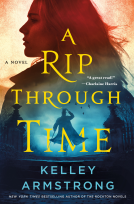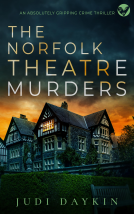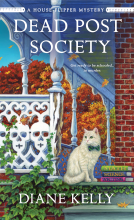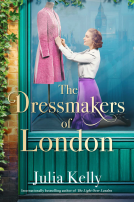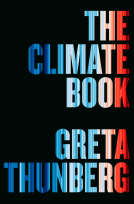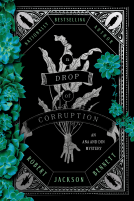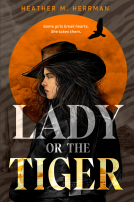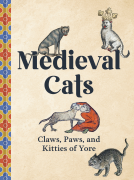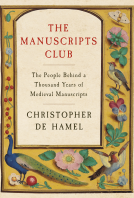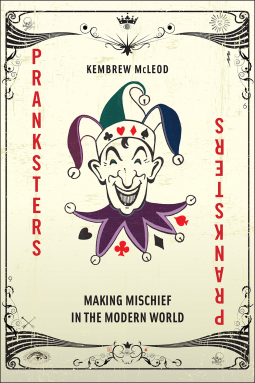
Pranksters
Making Mischief in the Modern World
by Kembrew McLeod
This title was previously available on NetGalley and is now archived.
Send NetGalley books directly to your Kindle or Kindle app
1
To read on a Kindle or Kindle app, please add kindle@netgalley.com as an approved email address to receive files in your Amazon account. Click here for step-by-step instructions.
2
Also find your Kindle email address within your Amazon account, and enter it here.
Pub Date Apr 01 2014 | Archive Date Sep 02 2014
Description
From Benjamin
Franklin's newspaper hoax that faked the death of his rival to Abbie Hoffman’s
attempt to levitate the Pentagon, pranksters, hoaxers, and con artists have caused
confusion, disorder, and laughter in Western society for centuries. Profiling
the most notorious mischief makers from the 1600s to the present day, Pranksters
explores how “pranks” are part of a long tradition of speaking truth to power
and social critique.
Invoking such historical and contemporary figures as P.T. Barnum,
Jonathan Swift, WITCH, The Yes Men, and Stephen Colbert, Kembrew McLeod shows
how staged spectacles that balance the serious and humorous can spark important
public conversations. In some instances, tricksters have incited social change
(and unfortunate prank blowback) by manipulating various forms of media, from
newspapers to YouTube. For example, in the 1960s, self-proclaimed “professional
hoaxer” Alan Abel lampooned America’s hypocritical sexual mores by using
conservative rhetoric to fool the news media into covering a satirical organization
that advocated clothing naked animals. In the 1990s, Sub Pop Records
then-receptionist Megan Jasper satirized the commodification of alternative
music culture by pranking the New York
Times into reporting on her fake lexicon of “grunge speak.” Throughout this
book, McLeod shows how pranks interrupt the daily flow of approved information
and news, using humor to underscore larger, pointed truths.
Written in an accessible, story-driven style, Pranksters
reveals how mischief makers have left their shocking, entertaining, and
educational mark on modern political and social life.
Advance Praise
No Advance Praise Available
No Advance Praise Available
Marketing Plan
No Marketing Info Available
No Marketing Info Available
Available Editions
| EDITION | Other Format |
| ISBN | 9780814796290 |
| PRICE | $32.00 (USD) |
Links
Featured Reviews
 Eleanor M, Reviewer
Eleanor M, Reviewer
'We won't get fooled again'
Kembrew McLeod is a professor of communication studies at the University of Iowa who successfully trademarked the term 'freedom of expression'. This is just one of many pranks he has perpetrated (more are revealed in this 'stealth autobiography') and thus he has an insider's perspective on the subject matter.
McLeod describes how are pranks can 'speak truth to power' and 'cultivate critical-thinking skills', however he covers a variety of other examples in this survey including spiritualism, confidence tricksters (one of the earliest successfully asked pedestrians to lend him their watches for the day), and the baleful influence of fabrications such as "The Protocols of the Elders of Zion". A recurring theme is the media and what happens when pranks and hoaxes enter its echo-chamber. Pranks can be influenced and facilitated by new media, whilst they in turn can bring about changes in these media.
"Pranksters" is an entertaining read and I found myself frequently giggling at McLeod's (chiefly U.S.) examples, and his chatty prose. I particularly enjoyed reading about Benjamin Franklin's baiting of a hapless astrologer, a long-running argument between Houdini and Conan Doyle about spiritualism, and the countercultural stunts of Paul Krassner.
The book, however, does have a dark side, as McLeod himself writes: "Despite some amusing moments sprinkled throughout "Pranksters", I can't shake the feeling of dread that runs through it." Pranks and hoaxes work because they tap into people's cherished beliefs, and if these beliefs include theories about, for example, Jews taking over the world, then fiction can be cited as fact worryingly quickly. I did sometimes wonder about the veracity of what I was reading: was I being pranked by McLeod (he has form). Luckily his assertions are meticulously sourced and cited in the endnotes, so I think he can be trusted...
 Paul P, Bookseller
Paul P, Bookseller
What a fascinating book. Although it is titled "Pranksters" there are all kinds of trickery, hoaxes and confidence games. I don't know exactly what I was expecting but I definitely got much more.
Taking a walk through the history of "pranking" (and its many forms), we learn about so many differing people, attitudes and reactions throughout the years. Many examples are given: from Benjamin Franklin, to P.T. Barnum and a receptionist from Sup-pop Records.
A well-written and researched book. Recommended.
Paul ARH
 Sarah C, Reviewer
Sarah C, Reviewer
Pranksters is a comprehensive look at all manner of tricks, pranks, hoaxes and cons. McKleod provides a clever exploration of the differences between these terms, and many others, to explain how they impact society. For example, a prank makes a statement and is designed to spark debate, whereas a hoax is more about duping people and capturing attention.
The author peppers his writing liberally with examples. I particularly enjoyed reading about the exploits of Benjamin Franklin: I wasn't aware he was such a mischievous soul! I look forward to reading more by McKleod in the future!
Readers who liked this book also liked:
Patti Callahan Henry
General Fiction (Adult), Historical Fiction, Women's Fiction
John Kotter; Holger Rathgeber
Business, Leadership, Finance, Nonfiction (Adult)
